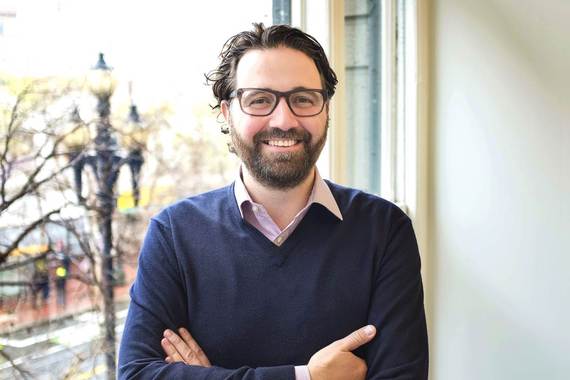Mikkel Svane is the Cofounder and CEO of cloud-based customer service software company Zendesk and recently published author of Startupland, a book on the company's founding story. In 2007, Mikkel and two friends started the company with the goal of making customer service software beautiful and easy to use after they saw firsthand the downside of clunky enterprise software and knew they wanted more for themselves than dreary consultant jobs. In Startupland, Mikkel chronicles the challenges of starting a company and moving across continents, and yet through all the trials and tribulations, how the three founders brought the company through a successful IPO last May. Today Zendesk has 52,000 paid customer accounts at companies using the platform to build better relationships with their customers.
Q: What does entrepreneurship mean to you, and what underlying characteristics do you see in successful entrepreneurs?
MS: Entrepreneurship means embarking on a journey that you believe in and are willing to devote yourself to. It means working hard to find that "luck" everyone thinks is out there, and looking in unexpected places for your opportunity. We took an industry that was overlooked, mundane, and neglected - no one cared or thought about customer service or the software behind it. But that was what allowed us to flip it on its head, start from scratch, and make it sexy. Taking something boring and making it beautifully simple has allowed us to create a product that people enjoy using. Entrepreneurship is a challenging journey, but successful entrepreneurs embrace the challenges because they genuinely believe in what they're working on; they know that there's a long road ahead, and they make it their life.
Q: What are you most proud of in your professional career? If you could do something over in your life, what would it be?
MS: I am really proud that our little Danish company, what began in a Copenhagen loft on a table made out of a door, has grown into a worldwide company touching hundreds of millions of people. My co-founders, Morten and Alexander, and I have often called the company our baby - we may disagree, but in the end, we all have its best interests in mind, and I'm happy we've stuck together to watch this company of ours grow and shift the entire industry of customer service and enterprise software. Standing in the NYSE the day Zendesk went public was one of the happiest moments of my life, knowing that our "baby" had just reached such an amazing, humbling milestone. I'm not one for regrets, so I wouldn't change a thing.
Q: Tell us about an instance where you had to go against the flow to realize your goal.
MS: There was one investor, early on and at a time that we were in a very difficult place financially, that seemed too good to be true - and I soon found out it was. I began to doubt myself and felt that I was letting the team down, unable to manage the investment situation when we were in dire need of cash. I had to let my co-founders know that we couldn't agree to a deal with an investor that I didn't trust - they understood and agreed, but it was hard to back out of a deal short after so much time and effort went into it. Who turns down money when you have a growing company and a growing family? It was a tough decision, but it carried the same relief as breaking off a bad relationship - we were poor, but we chose what was better for us and the company in the long run.
Q: What are some of the best customer support industry secrets you have learned along the way?
MS: As a company that helps almost 50,000 organizations provide great service to their own customers, we see a lot of customer service interactions. We've found that perfectly crafted emails don't necessarily get responses. Simpler emails with a handcrafted sentence or two and maybe a spelling error - those are the emails people respond to, because they know there's a real person on the other end. We also know that women often get more responses. Way back, an early employee created a new persona for himself, calling himself Josephine, and was amazed at the significant increase in responses. The alter ego is now named Jennifer Hansen, and almost all of our customers "meet" her at one point during their trial. We also know that it doesn't always matter what you interact on with potential customers - as long as there is a conversation going on, you'll see conversions to customers.
Q: LinkedIn style - If you were to give advice to your 22 year old self, what would it be?
MS: My story and the book are a testament to the fact that there are second chances. Failure is terribly rough, and I don't think people should brag about how many failures they have under their belt, but you can always recover. And don't worry so much about age. While the popular myth is that you have to be a 20-something to start a company, you can be a successful founder in your 30's and 40's and often have more motivation and wisdom at that point in your life.
Follow Mikkel Svane at @mikkelsvane, and check out the other interviews in Going Against the Flow series at http://www.huffingtonpost.com/charu-sharma/ or thestartupsutra.com.

